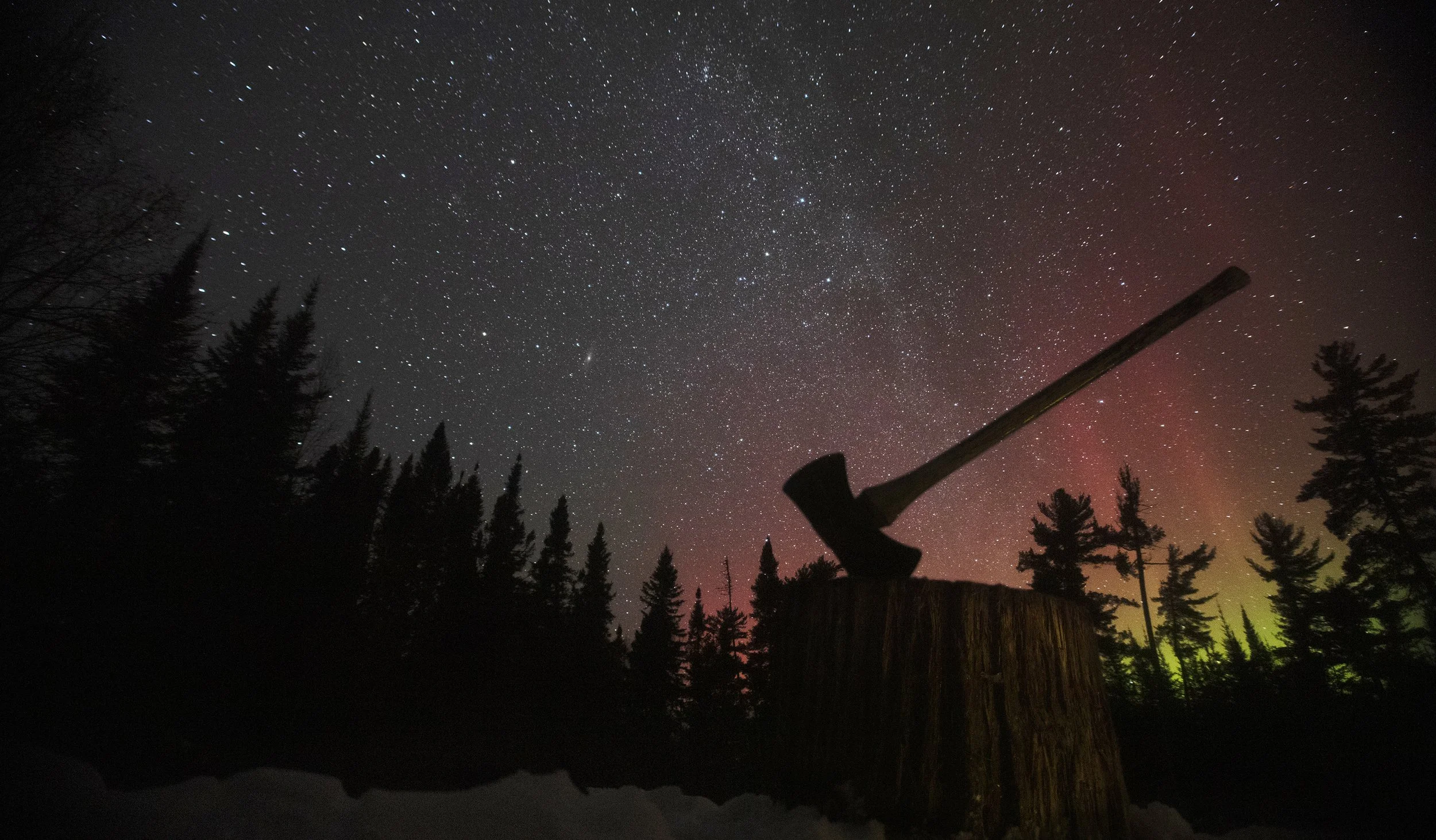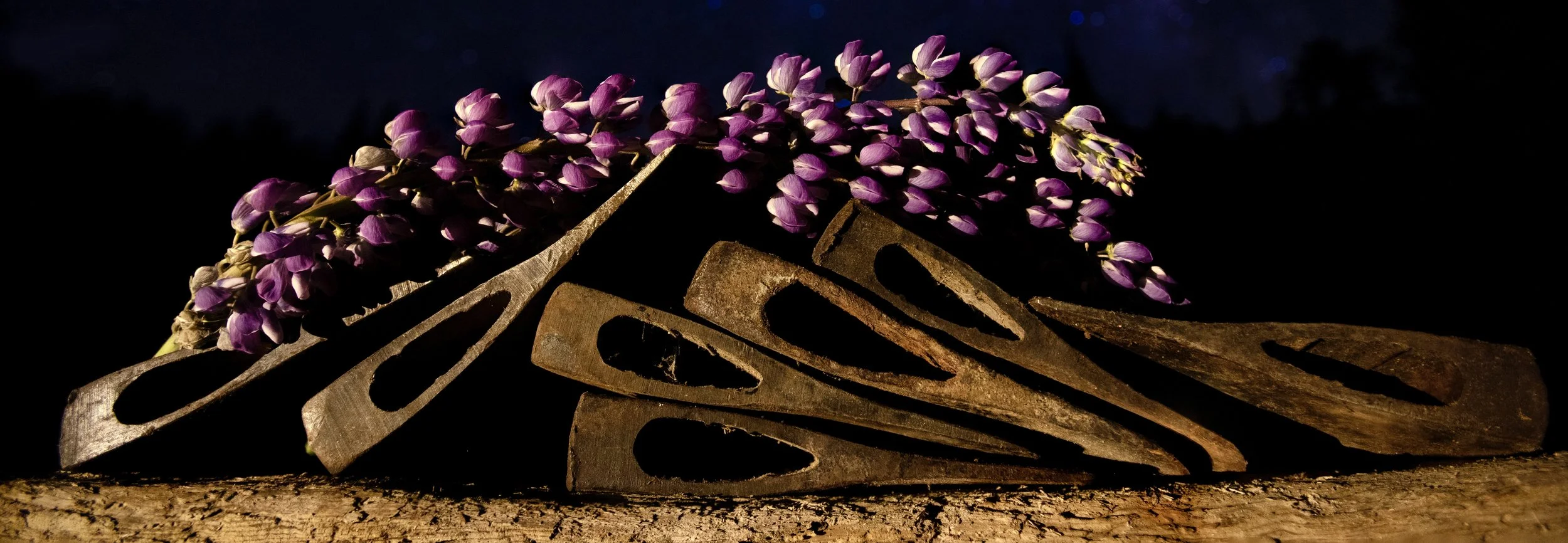TOOLS OF THE TRADE
“THE WOODSMAN"
An axe rests motionless on a weathered stump, its silhouette sharp against the burning hush of northern light. The trees stand like sentinels beneath a thousand stars, and the last swing of the blade lingers in the cold night air.
This image was made along an old logging trail that once fed the hunger of sawmills—still etched into the wilderness beside Clearwater Historic Lodge. Now silent, the path remains, holding the weight of history in its frozen soil and the faint echo of boots, hooves, and iron wheels long gone.
“OFFERING”
These axe heads once split pine and birch, carving trails through snow and silence. They’ve rested here for decades—stacked like bones beneath the floorboards of the lodge, their edges dulled but not forgotten. Tools once meant for labor, now relics of a wilder rhythm. And then came the flowers—gathered from the forest just beyond the porch, where lupine bloom. I crowned the rust and iron with color. Maybe because even the sharpest things deserve beauty
“STEEL BONES”
Under the weight of leaves and silence, the old plow truck waits—its frame rusted, its engine quiet, its work long finished. On this fall night, the stars spilled across the sky while the truck caught the glow like memory itself, still holding the shape of effort and purpose.
There’s a kind of dignity in machines like this—used hard, but never broken. It carried weight not meant for its own, braved storms without protest, and always came when called. Even now, resting in stillness, it deserves respect. The bond between human and machine runs deeper than oil and metal—it runs through loyalty, wear, and time.
This old Lund has known the weight of storms and the hush of perfect stillness. Its hull remembers every crossing—every fish
pulled, every storm outrun, every quiet dawn. Tonight, it waits in silence while
the sky burns green above it, a witness to both work and wonder.
“Resting workhorse / boreal spirits”
“The Way Home”
Someone once trusted this flame to guide them.
A hunter returning late, boots heavy with snow. A trapper crossing a frozen creek, his breath sharp in the night air. A weary traveler navigating the black silence of the wilderness, looking for the faint outline of a cabin or the comfort of a distant fire.
Before the hum of wires and rechargeable lanterns, this was light: fragile, flickering, alive. Its glow carved narrow paths through endless darkness, each step a small defiance against the night. It wasn’t just a tool—it was hope in the cold, a signal to anyone watching that someone was still out there moving forward.
Now it burns again, not for survival, but in remembrance. A quiet relic from a time when flame alone stood between safety and the wild unknown.




